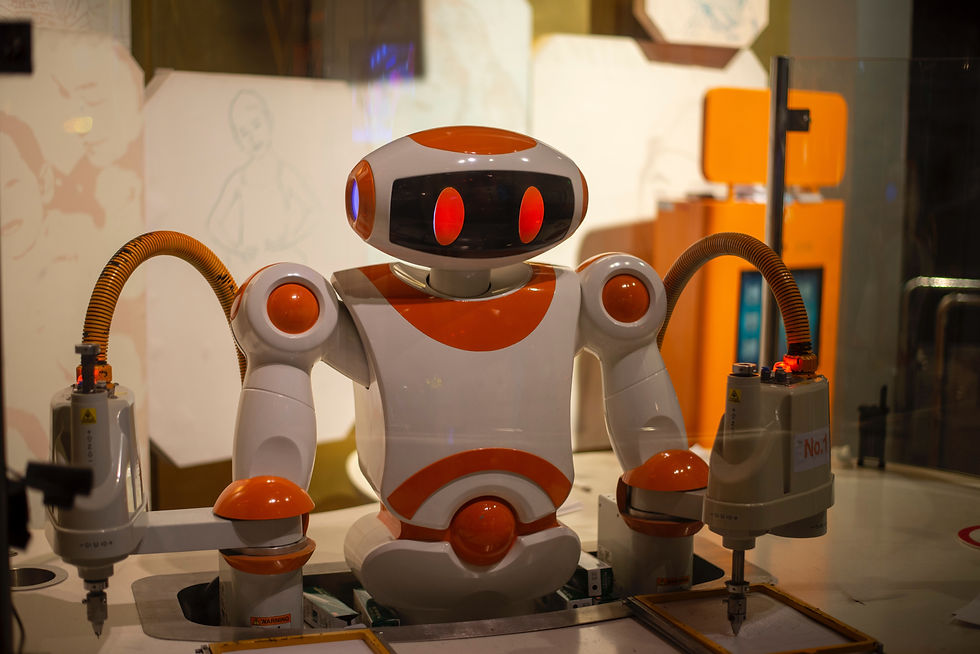Artificial Intelligence AI vs Human Creativity
- aditi shastry

- Jan 31, 2023
- 2 min read
AI has made strides in many fields, including the creative arts. But is it a threat to human creativity?
It is difficult to predict the exact future of humans living with AI, as it will likely depend on how AI technology develops and is used. However, it is likely that AI will continue to play an increasingly important role in many aspects of our lives, including in the creative arts.

In recent years, AI has been used to generate paintings, write songs, and even compose original pieces of music. These creations have sparked discussions about the role of AI in the creative process and whether or not it poses a threat to human creativity.
On one hand, some argue that the use of AI in the arts can enhance and augment human creativity. For example, AI can help artists and musicians generate new ideas or find patterns and connections that they might not have seen on their own. It can also help reduce the tedious and repetitive tasks that are often part of the creative process, allowing artists and musicians to focus on more creative work. This could lead to new and innovative forms of artistic expression.
Concerns regarding AI taking over creative jobs
At the same time, there are concerns that the use of AI in the creative arts could lead to a loss of human jobs and a homogenization of artistic expression. As AI algorithms become more advanced, they may be able to generate creative works that are indistinguishable from those created by humans. This could lead to a situation where AI is used to replace human creatives, leading to a loss of jobs and a decrease in the diversity of artistic expression.
Additionally, the use of AI in the creative arts raises ethical concerns. If AI algorithms are used to generate creative works, who owns the rights to those works? And if AI-generated works become indistinguishable from human-generated works, how will we determine which works are truly original and deserving of credit?

Overall, while AI has the potential to enhance and augment human creativity, it also poses challenges and raises ethical concerns. As we continue to explore the use of AI in the creative arts, it will be important to carefully consider these issues and ensure that the benefits of AI are balanced with the interests of human creatives.
Overall, the future of humans living with AI is likely to be complex and multifaceted. While AI has the potential to enhance and augment human creativity, it also poses challenges and raises ethical concerns. As we continue to develop and use AI technology, it will be important to carefully consider these issues and ensure that the benefits of AI are balanced with the interests of human creatives.






Comments